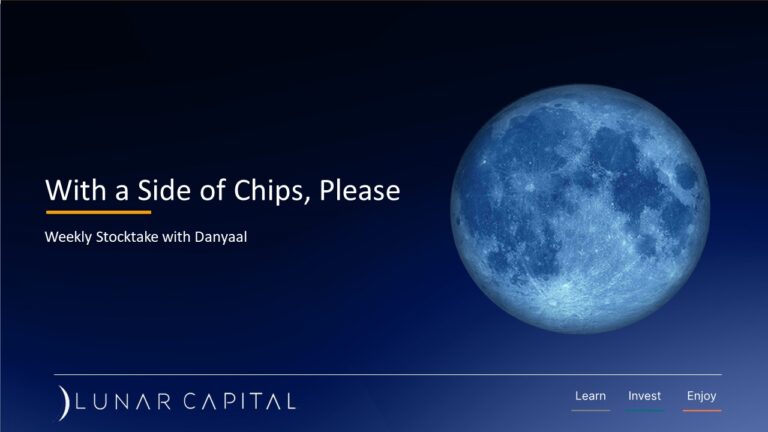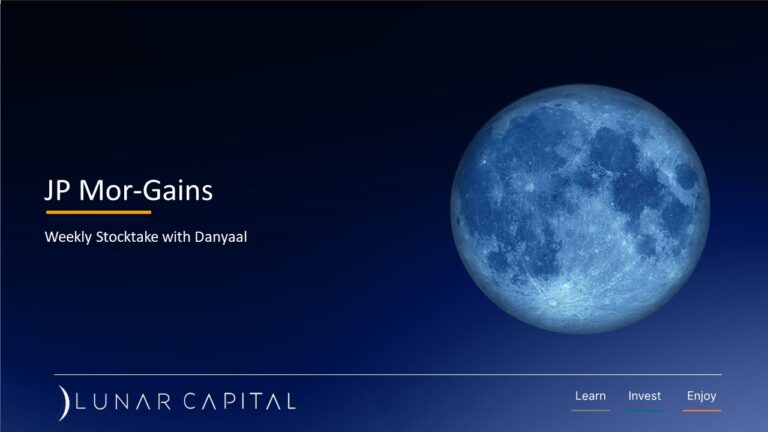Shhh..
As the Naspers (NPN) share price keeps on powering ahead, I can’t help thinking why did I ever sell the Naspers I bought for my wife’s portfolio a few years back (Shhh.. please don’t tell her).
In 2010, I bought some Naspers for my wife’s account for around R298 per share. Within a period of a few months, the share price rose by over 50% and I thought that this couldn’t get any better. Who wouldn’t want to earn a 50% return in a few months? So, I sold them to lock in the 50% gain. And since then, all I’ve done is painfully watch Naspers go higher and higher (not in a smooth line, it has had a few very sharp downwards movements too). Today, it is trading at over R3000 per share – so, by locking in a 50% gain, I (actually my wife) lost out on a 1,000% gain.
Mistakes
Every investor who has been in the markets for a long-time, will be able to relate stories like the one above.
To paraphrase Warren Buffett, there are two categories of mistakes that an investor can make:
- Mistakes of Commission; and
- Mistakes of Omission.
Mistakes of Commission
A mistake of commission is one where we consciously made a decision which was a mistake. Examples are:
- We decided to purchase an asset, but we overpaid for it, i.e. it turns out to be a bad investment;
- We decided to sell an asset, but we under-priced the asset. We thus miss out on the opportunity to realise the true value of the asset. This can also be called an opportunity cost. The Naspers example above means that we had an opportunity loss of 950%, even though we did not lose any actual money.
Mistakes of Omission
Mistakes of omission on the other hand, are mistakes that are made when we omit to do something. An omission may be that we miss to see an opportunity. Or worse still, we see an opportunity, but fail to act appropriately. In this case, we purchase too little of a great asset which is being offered at a bargain price. Charlie Munger, who is Warren Buffett’s business partner, regards mistakes of omission the more costly of the two types of mistakes for investors.
Common investing mistakes and possible remedies
Let’s walk through some common investing mistakes and how one could possibly avoid them.
Mistakes of Commission
- Buying and asset and overpaying for it:
- Buying a very good business but at an inflated price. This often happens towards the end of a bull market. One is often influenced by sentiment – so-and-so stock is performing well and therefore it is a must-have in your portfolio. Arguably, if everyone knows that a particular company is doing well, then its share price should reflect its popularity (i.e. it is unlikely to be cheap). To minimise this type of mistake, one has to be able to analyse a company’s underlying value and only invest in it if the price is less than its intrinsic value.
- Buying into a bad business, thinking that it can be turned around. It is true that one can buy a bad business at a good price and earn a decent return from it and that businesses can be turned around, but this is not the case for all bad businesses. One of my own philosophies is to simply ignore bad businesses irrespective of whether they offer value or not. It does not fit into my style of investing, so I stick to what I know best. However, if a good business goes through tough times, then I will look at it closely and possibly decide to invest in it if my assessment is that it can be turned back to its previous glory.
- Getting caught up with a “great tip” from someone well-regarded or who simply talks a good story. Media and especially social media provides lots of pundits telling us about what to buy and sell, etc. If you had taken the advice of most of these pundits, the chances are greater that you would have lost money rather than made great returns. Make up your own mind on what to invest in and when to invest. Use a strategy that you are comfortable with.
- Selling an asset at below its intrinsic value.
- The example, I gave on Naspers above, is a good example of this. Maybe with a little more homework, or a bit more analysis, I would have not sold. The other side of the coin is that I could have done all the analysis in the world, but still came to the conclusion to sell. In this case, I would need to accept that I could not have made a better decision at that time and ask myself how I would tackle a similar situation in the future. I’ve learnt to hold on to good companies for as long as I can and hence our bias to “invest in great businesses for the long term” at Lunar Capital.
Mistakes of Omission
- Not identifying a significant buying opportunity.
- The universe of investing is so large, that it is impossible to cover it entirely. This means that you should identify your investment universe and build your knowledge, skills and strategy for that specific investment universe. It does pay however, to every now and the take a look at other industries or analyse trends that are taking place in other markets. Often, a trend (think biotech; renewable energy; cryptocurrencies) is not sufficiently noticed until there are a few years of significant growth. It helps to keep your eyes and ears open to trends outside your comfort zone. If this trend appears to be quite strong, then try and build some competence in it or tap into other professionals that have a better understanding of that trend/industry.
- Every now and then, significant buying opportunities come about (think after the 2008 global financial crisis). At times like this, one needs to be very aggressive in buying these highly discounted businesses. Unfortunately, market sentiment at that time will not be great. So, again if you’re disciplined in your investment valuation methodology, you would buying when “there is blood on the floor.” Similarly, if there is a business that you would love to own, buy as much of it as you can if and when it shows great value (i.e. is cheap).
- Not identifying a significant selling opportunity.
- Another mistake is not to sell in time. In this case, one may be missing a negative industry trend or also a company specific issue. A case in point is the recent results from the fast food industry. All indications were that the consumer is struggling, that fast food businesses were over-paying for franchise licenses from global players, etc. This would have been a good time to have sold some of these businesses, before their results even came out. Many investors who have enjoyed the great returns that Famous Brands (FBR) provided over the years would have assumed that this will carry on forever. They would thus miss important indicators that significant headwinds are facing the industry as a whole. So, they typically hold onto those shares until the results come out, which is often too late.
Some other examples of investing mistakes
Over a period of over 25 years in investing, I can go through many mistakes that I’ve made over the time. Over and above the Naspers example, here are a few others:
- Holding onto to Stocks and Stocks (a construction company) until it went bust (100%) loss.
- Creating arbitrary buy or sell prices because it sounds or feels good. Example: I’ll sell if I get a 50% return or I’ll sell when the price reaches R100 per share.
- Thinking that old sector industries would never make a come-back, thus missing the early stages of the previous Resources boom.
The list can go on and on. I’ve used all of these as learning experiences and fine-tuned our investment methodology as a result of this learning. I’m satisfied that the results of the good decisions far out-weighed the mistakes over this period.
Perhaps my biggest mistake is writing this piece and admitting my Naspers mistake to my wife.





